Finance sector development
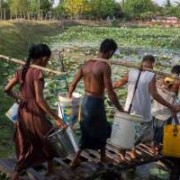 Finance sector development
Finance sector development
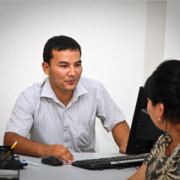 Finance sector development
Finance sector development
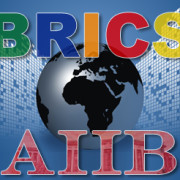 Finance sector development
Finance sector development
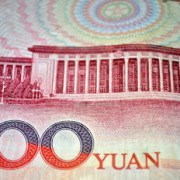 Social development and protection
Social development and protection
 Environment
Environment
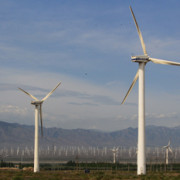 Finance sector development
Finance sector development
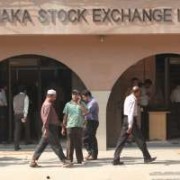 Social development and protection
Social development and protection
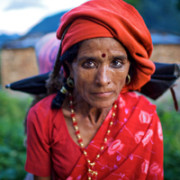 Industry and trade
Industry and trade
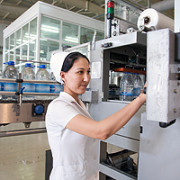 Social development and protection
Social development and protection
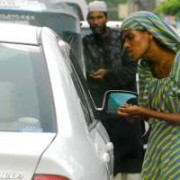
To invest, or not to invest? That is the problem in Myanmar

Myanmar opened a new chapter in its history in November 2010 when it adopted its open-economy policy. Since then, an impressive array of reforms has been implemented. Excitement about this transition has been widely shared among political, economic, and investment communities around the world. However, Myanmar’s sustainable and inclusive growth depends on it maintaining this momentum during its transition—particularly inflows of foreign direct investment.
Increased lending to SMEs aids financial stability

A key lesson of the 2008 global financial crisis (GFC) was the importance of containing systemic financial risk and maintaining financial stability. At the same time, developing economies are seeking to promote financial inclusion, such as greater access to financial services for low-income households and small firms, as part of their overall strategies for economic and financial development. This raises the question of whether financial stability and financial inclusion are, broadly speaking, substitutes or complements. In other words, does the move toward greater financial inclusion tend to increase or decrease financial stability?
The NDB and AIIB initiatives sound a wake-up call for global finance

July 2014 marked the seventieth anniversary of the Bretton Woods conference, which laid the foundation for the post-WWII international financial system. The conference established the IMF to stabilize the world economy and the World Bank to finance post-war reconstruction. Both have evolved into pillars of present-day global finance.
Globalizing the RMB? Beijing appoints three new clearing banks in London, Frankfurt, and Seoul

In the span of three weeks from late June to early July 2014, the central bank of the People’s Republic of China (PRC) appointed three new RMB clearing banks successively for London (China Construction Bank), Frankfurt (Bank of China), and Seoul (Bank of Communications). The three new clearing banks join the existing group of RMB clearing banks of the Industrial & Commercial Bank in Singapore: and the Bank of China for Hong Kong, China; Macao, China; and Taipei,China.
Preparing for life after the MDGs

The establishment of the Millennium Development Goals (MDGs) by the United Nations in 2001 was a defining moment. It rallied a global effort in the fight against poverty, hunger, and disease, while promoting universal education, gender equality, and environmental sustainability.
Time for an Asian environmental miracle?

The world is changing fast as Asia continues to surge ahead. In less than two generations, the Republic of Korea has gone from being one of the poorest countries in the world to one of the richest and a global leader in technology and manufacturing. The People’s Republic of China (PRC) is set to become the largest economy in the world in 2014. In Viet Nam, 15-year-olds are performing above OECD average in education. Under the new leadership of India's Prime Minister Narendra Modi, India will aim for the skies.
Emerging Asia should brace for higher global interest rates

The US Fed has been winding down its bond purchase program, widely known as “quantitative easing,” since December 2013. The program was introduced in the wake of the 2008 global financial crisis to fight the recession and foster a rapid economic recovery. With the improvement in the US economy, the Fed suggested at its policy meeting in March that the program may end this coming fall and it may start raising interest rates about six months from then.
Eradicating absolute poverty by 2030 – are we aiming too low?

The post-2015 development agenda is leaning toward a goal of eradicating absolute poverty by 2030. The World Bank’s recently approved corporate strategy has the same goal. I believe, however, that this target is absolutely meaningless for the Asia and Pacific region.
The German Mittelstand – a model for Asia’s emerging economies?

German Mittelstand (GM), the small and medium-sized enterprises (SMEs) in Germany—are a unique and highly successful economic phenomenon that could serve as a model to promote trade and industry for emerging Asia.
The relevance of $1.25 – recounting the poor

The millennium development goals (MDGs), which end in 2015, are a remarkable set of agreed global aspirations, with the world community committing to eradicate extreme poverty for the first time in history. In the 19th century around 80% of the population was poor with affluence generally uncommon. Over the last two hundred years, however, thinking about poverty has changed dramatically. Where once poverty was considered the norm, governments now use public policy to make it the exception.


Search
Subscribe / Connect to Asia Pathways
Subjects
- Agriculture and natural resources
- Blog
- Capacity development
- Climate change
- Economics
- Education
- Energy
- Environment
- Finance sector development
- Gender
- Governance and public sector management
- Health
- Industry and trade
- Information and Communications Technology
- Infrastructure
- Miscellaneous
- Population
- Poverty
- Private sector development
- Regional cooperation and integration
- Sanitation
- Social development and protection
- Transport
- Uncategorized
- Urban development
- Video Blog
- Water
Recent Posts
- Artificial intelligence: A new driver for inclusive growth and development?
- Increasing trust in cross-border e-commerce and artificial intelligence
- Enhancing access to maternal and newborn healthcare in developing Asia
- Can electric vehicles lead the way to a sustainable future?
- Mitigating climate-related sovereign risk to accelerate action on the climate emergency




Recent Comments